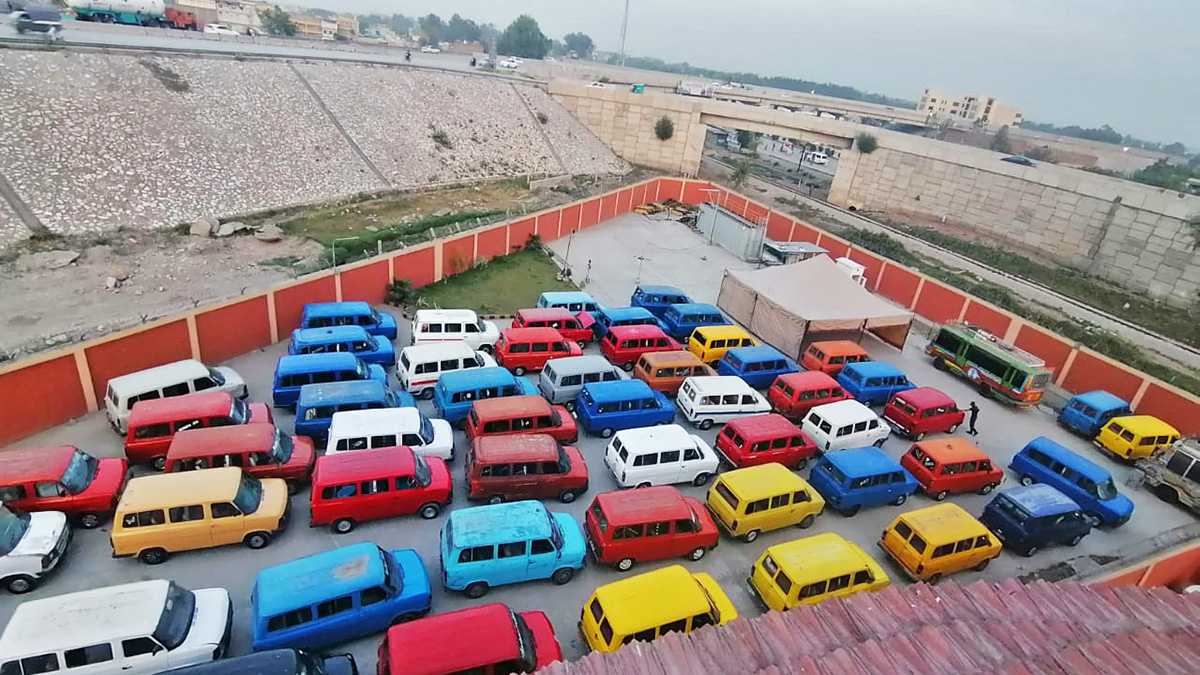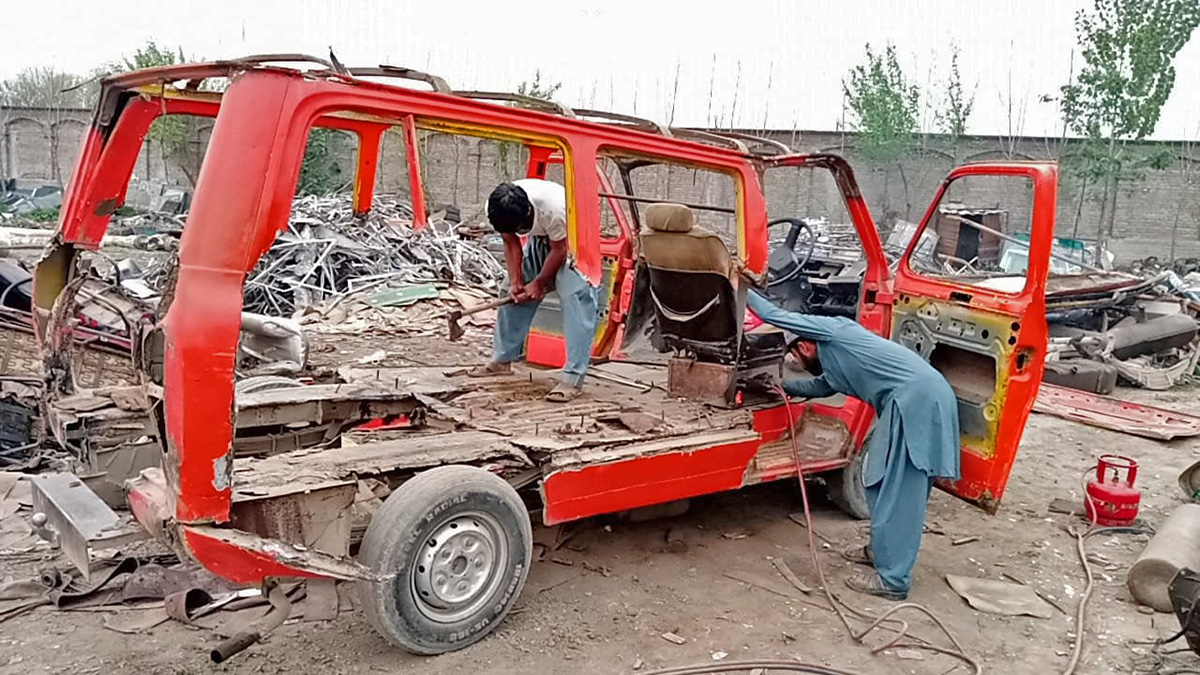PESHAWAR: Transportation authorities in Khyber Pakhtunkhwa have started to shred decades-old and corroded passenger buses into scrap metal as the administration says it is trying to reduce traffic congestion and carbon dioxide emissions in Peshawar, the provincial capital.
The initiative launched last month comes as the city's Bus Rapid Transit (BRT) is expanding coverage of its more environment-friendly hybrid diesel vehicles.
"This project will contribute to clean and green initiatives," Umair Khan, spokesperson of TransPeshawar — the government-owned company that manages BRT — told Arab News on Sunday.
He said the company has already bought from private owners and turned into scrap 148 buses out of 418 such vehicles registered in the city. It has not been decided how the scrap metal would be recycled.

In this undated photo, old passenger wagons bought by TransPeshawar are parked in Peshawar to be turned into scrap metal. (Photo courtesy: TransPeshawar)
The provincial government says it has earmarked Rs150.8 million to compensate bus owners.
"TransPeshawar offers Rs1.4 million ($9,000) against one wagon and Rs1.5 million for one passenger bus," Khan said. "The scheme is still ongoing and more transporters are coming to get themselves registered to qualify for compensation."
He added that by offering compensation and competitive price for the vehicles, the administration is giving the sector's stakeholders a chance to start new and better businesses.
But while both the provincial government believes the initiative is necessary for reducing air pollution in a city that is one of Pakistan's most polluted, a transporters' body says it would lead to unemployment.
"Initially, the government has promised to give alternate businesses or adjust our drivers and helpers in the BRT-service, but that pledges cannot be materialized. We demand alternate business to feed our children," Yar Muhammad Afridi, president of the provincial Local and Urban Transport Association, told Arab News.

Workers dismantle a former public transport minibus at a workshop in Peshawar, Pakistan, on March 13, 2021. (Photo courtesy: TransPeshawar)
According to Afridi's estimates, around 3,000 drivers and helpers involved in the sector would lose their livelihoods.
Drivers themselves, however, do not link the loss of jobs to the scrapping project but the inevitable expansion of BRT.
Naeem Shinwari, 56, a bus driver for over 20 years, said he was earning a decent amount of up to Rs40,000 every month. It was the introduction of BRT last year, he said, that had "snatched" his job, forcing him to consider entering a new profession.
“For two months now I’m at home without any work and I’m still undecided what to do," he told Arab News. "But I plan to start either a chicken business or establish a roadside fruit and vegetable kiosk."












